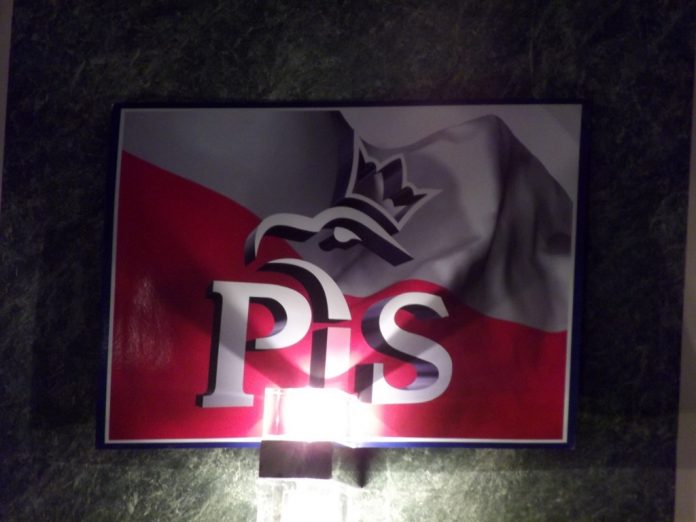The visit of Italy’s interior minister and the leader of the far-right League, Matteo Salvini, to Poland sparked speculation over a possible union between Eurosceptics and the far right.
In Warsaw on January 9, Salvini’s anti-immigration crusade was praised by Poland’s ruling party officials. In addition, Salvini expressed his desire to form a strong European anti-immigration alliance that will play a decisive role in the European Union after the EU elections in May.
The two sides, the Law and Justice (PiS) party led by Jarosław Kaczyński and the League, reached some common points on their anti-immigration hysteria. They also shared thoughts against what they view as Brussels’ attempts to restrict national powers.
But once the media lights dimmed, so did the feelings of euphoria among by Polish officials. They were struck by a rather gloomy reality. And the idea to maintain close relation with Salvini and especially with what he represents, came under heavy scrutiny.
In fact, Salvini is not only known for his anti-immigration bully-like declarations. He and his party have uttered a long list of racist statements. He is also a vociferous champion of the anti-EU fight in Europe and, worst of all, he is an habitue in Vladimir Putin’s courtyard.
As such, belonging to the same Group in the next European Parliament with Salvini and his friends from France and Austria, could be catastrophic for PiS’ image in Poland and the rest of Europe as well.
Salvini, Marine Le Pen and Heinz-Christian Strache are fervent supporters of Russian President Vladimir Putin and his aggressive policy in Ukraine and elsewhere. Poles feel they could be targets of such an aggressive policy.
An alliance with Putin’s friends could be exploited by the opposition in Poland to spread scepticism among PiS followers. The said alliance would put Poland irreversibly into the same camp as the EU’s “enemies” – and this would bring about very negative consequences.
After all, PiS is not a far-right party and its form of nationalism is much different from the hate-inspired politics of Salvini and other politicians like him.
It is now up to PiS to decide which road to take. It must decide which European Parliamentary group to join.
If we exclude the far-right option offered by Salvini, there are just three possibilities for the Polish Conservatives.
PiS as an ECR leader
PiS is the second biggest member of the ECR Group with 15 MEPs. For this reason, Ryszard Legutko is the co-chair of the group. Although ECR have already appointed the Czech MEP Jan Zahradil as their Spitzekandidat, most likely the group will disappear after the withdrawal of the British MEPs.
The members of ECR will search a home in other groups. Some of them will not have any difficulty to join Salvini and Le Pen, such as the Dans and the Finns, for example. But others, the Czechs and the Belgians, for instance, will face serious problems to digest such a partnership.
This means the PiS could try to keep ECR alive. Despite the fact that PiS starred in accepting an Italian deputy from Frattelli d’ Italia, the direct descendant of the neofascist MSI, and another one who had spit from Le Pen’s party, PiS doesn’t try to attract far-right groups.
Some ECR members are simply ultraconservative. The Czech ODS, the Belgian New Flemish Alliance, the two Dutch protestant parties and the Slovak conservative parties will be searching for a new home after the elections. And they could join a PiS initiative.
This option has of course difficulties, but it will help PiS and Poland to address (in a less radical way) the problems the Polish government has with Brussels.
Under such a perspective, even some far-right members of ECR might have second thoughts and opt for this rather than to embark on an adventure under Salvini leadership.
A ‘Harlequin’ alliance is possible?
Italy’s Five Stars Movement (M5S) is also desperately in search of partners. Luigi Di Maio held a meeting in Brussels on January 8. The participants from Croatia, Finland and Poland, if they will succeed to elect deputies in the European Parliament, will not be enough for the creation of a Parliamentary Group.
Are PiS and M5S so close politically to form a Group? Sometimes appearances may be deceiving. Of course, their marked Euroscepticism might form a sufficient base to start negotiations. In addition, there is a precedent. The Group formed by Nigel Farage and Beppe Grillo, the EFDD, distinguished itself for the variety of its members: from the Italian populists to the British ultraconservatives and the German far-right AfD.
After the abortive attempt to take refuge in ALDE Group, Di Maio now appears to be isolated and likely needs to secure a Group for his party.
Who said another ‘Harlequin’ alliance, this time between Poles and Italians, is not possible?
A painful but wise option
If the above options are rejected by Poles, then another one remains: joining the EPP. According to some rumours spreading in Warsaw, this is what some leading members of the party want.
This choice will not come as a surprise and should not shock anyone. PiS, as well as the Civic Platform (PO), came from the Solidarnosc movement and their differences are not as deep as they appear to be.
After all, the EPP hosts the far-right bully of Eastern Europe, Viktor Orbán, his proxy in Slovenia Janez Janša, Sebastian Kurz in Austria, as well as the Bavarians of CSU.
But even if such a choice, which is so important for the future of Poland, is wise, it won’t be painless.
The question now is whether the PiS leadership ready for this.

